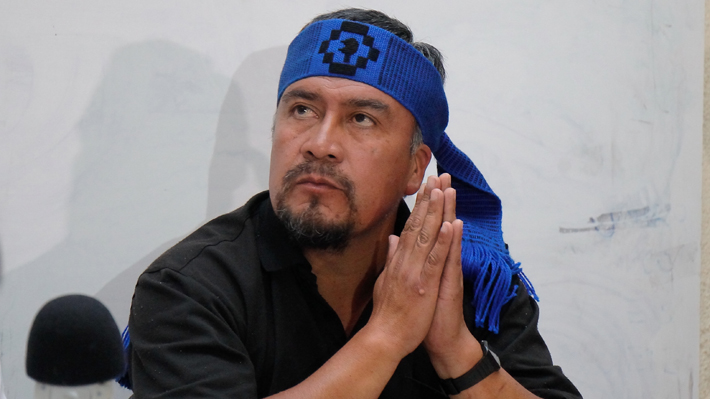- Héctor Llaitul, head of the Arauco Malleco Coordinator (CAM), faces a 23-year prison sentence after being found guilty of multiple crimes. The ruling comes at a time of high tension in the southern macrozone.
The Oral Criminal Court of Temuco has handed down a 23-year effective prison sentence to Héctor Llaitul, leader of the Arauco Malleco Coordinator (CAM), after being convicted of crimes under the State Security Law, violent usurpation, simple theft, and assault on authority. The sentence imposes 15 years for the main offense, five years for repeated timber theft, and three years for assault on authority, occurring amid escalating violence and heightened security in the La Araucanía region.
The hearing, held on April 22, took place under heavy security, reflecting the tension in the southern macrozone. The region has been placed under a "red alert" following the murder of three police officers in the commune of Cañete—a crime that shocked the country and occurred days after Llaitul was declared guilty. Although no direct link has been established between this incident and the CAM or any other extremist group, the timing has exacerbated the climate of insecurity in the area.
The sentence against Llaitul is seen as a precedent in the Chilean state's fight against acts of violence linked to territorial claims and demands by Indigenous groups. The CAM, which has been tied to sabotage actions and land claims in favor of Mapuche communities, now faces a significant blow with the loss of one of its main leaders.
Human rights organizations and Indigenous groups have expressed concern over the use of the State Security Law in this and other cases, arguing that it may criminalize social protest and the legitimate demands of Indigenous peoples. The debate on balancing security and Indigenous rights remains a central issue in Chilean society.
The situation in La Araucanía remains volatile, and authorities have called for calm and dialogue as means to resolve conflicts. Meanwhile, Héctor Llaitul's sentence stands as a reminder of the deep divisions that still need healing in the region.







Comentarios (0)
No hay comentarios aún. ¡Sé el primero en comentar!
Deja un comentario